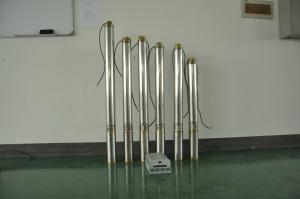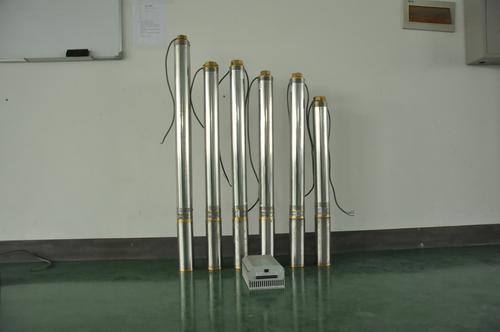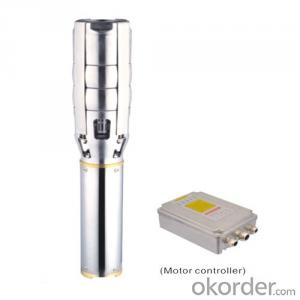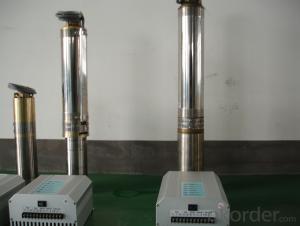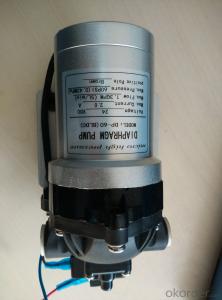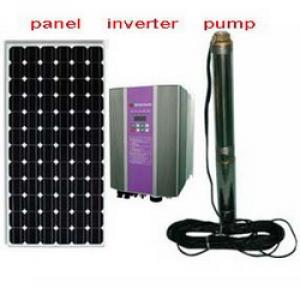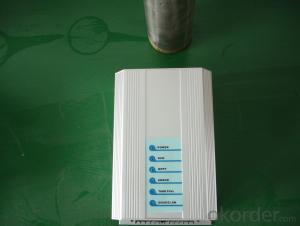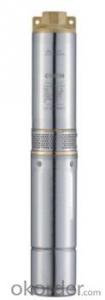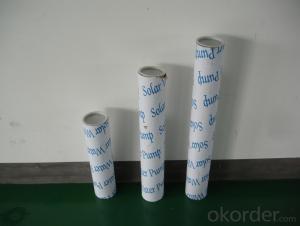DC Brushless Solar water pump
- Loading Port:
- Shanghai
- Payment Terms:
- TT OR LC
- Min Order Qty:
- -
- Supply Capability:
- 300 set/month
OKorder Service Pledge
Quality Product, Order Online Tracking, Timely Delivery
OKorder Financial Service
Credit Rating, Credit Services, Credit Purchasing
You Might Also Like
how is the rotor made:
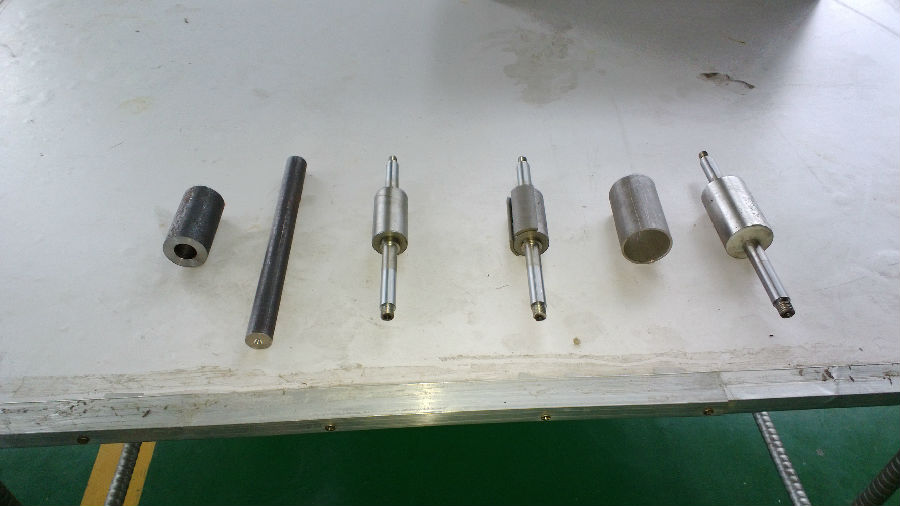
how is the motor made:
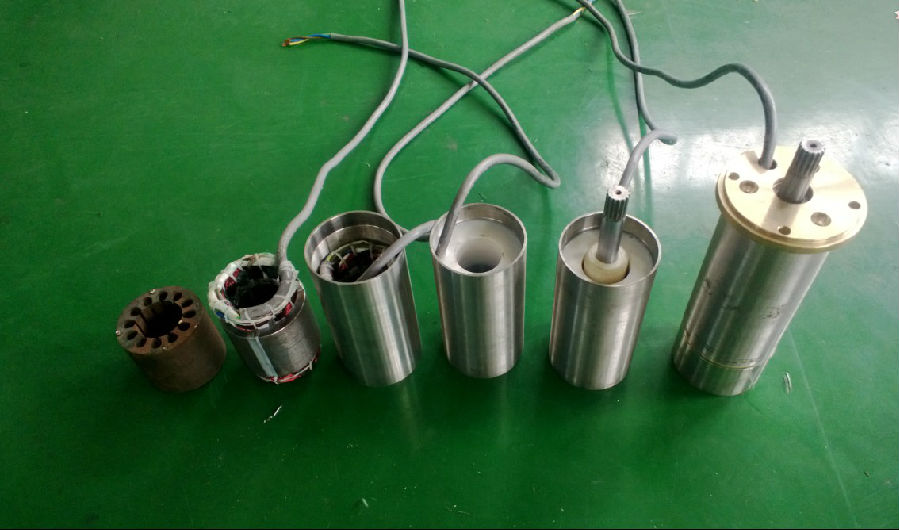
the pump :
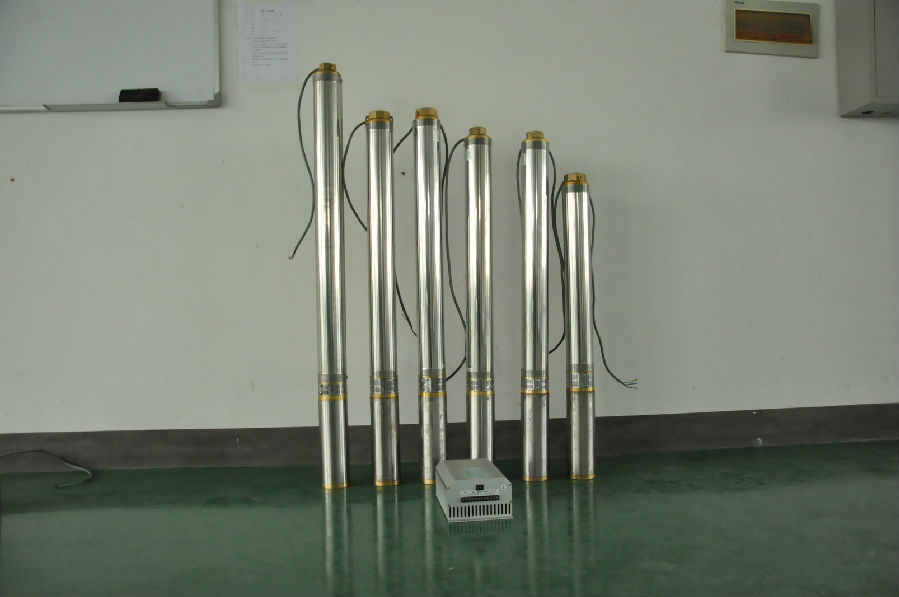
controller terminal connection:
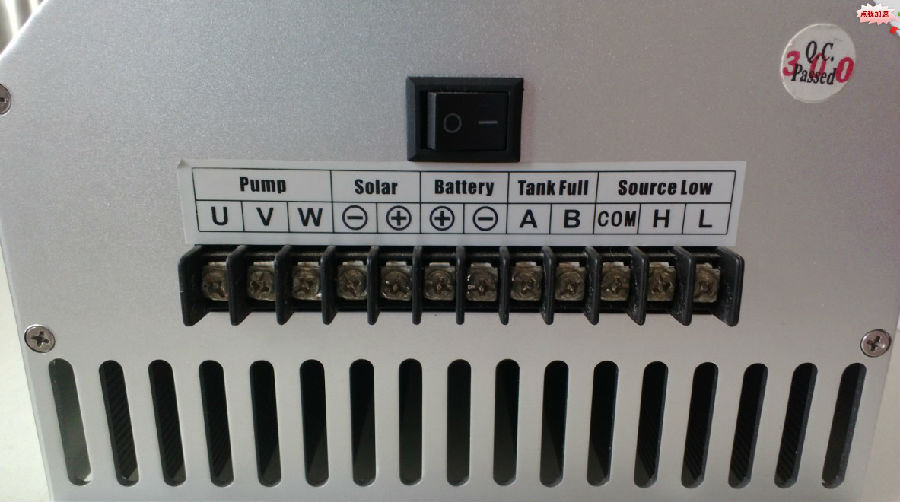
The permanent magnet:
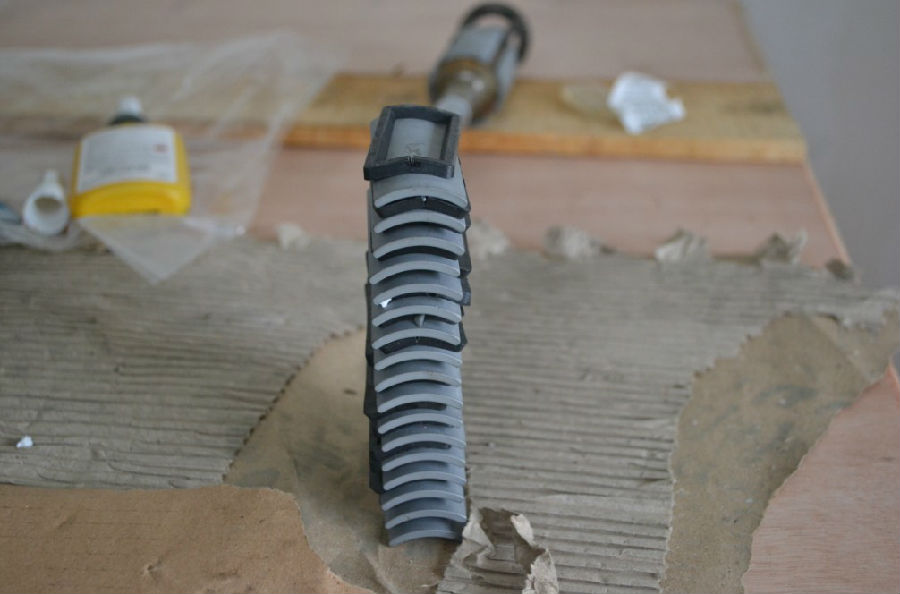
the impeller:
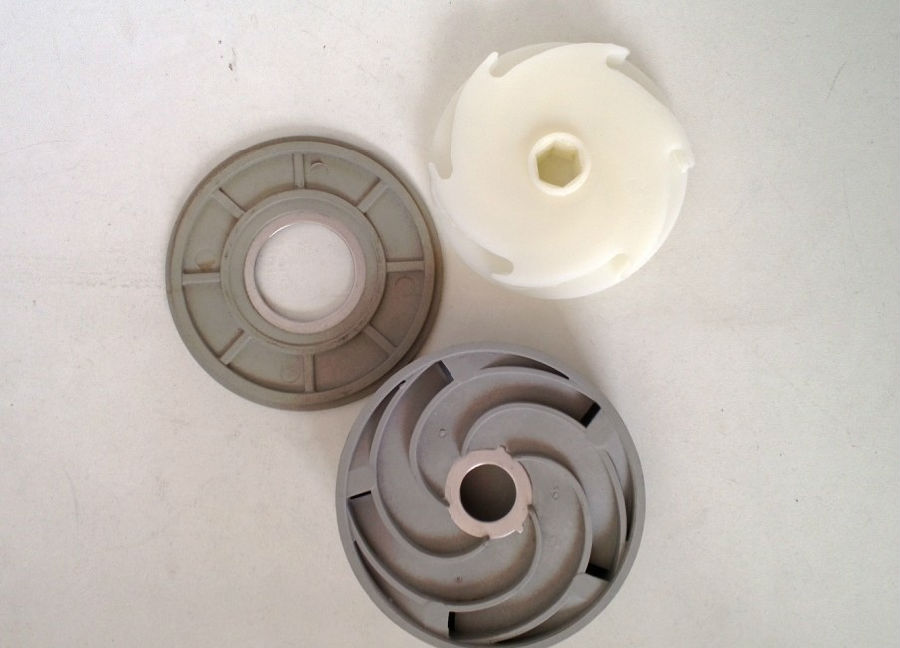
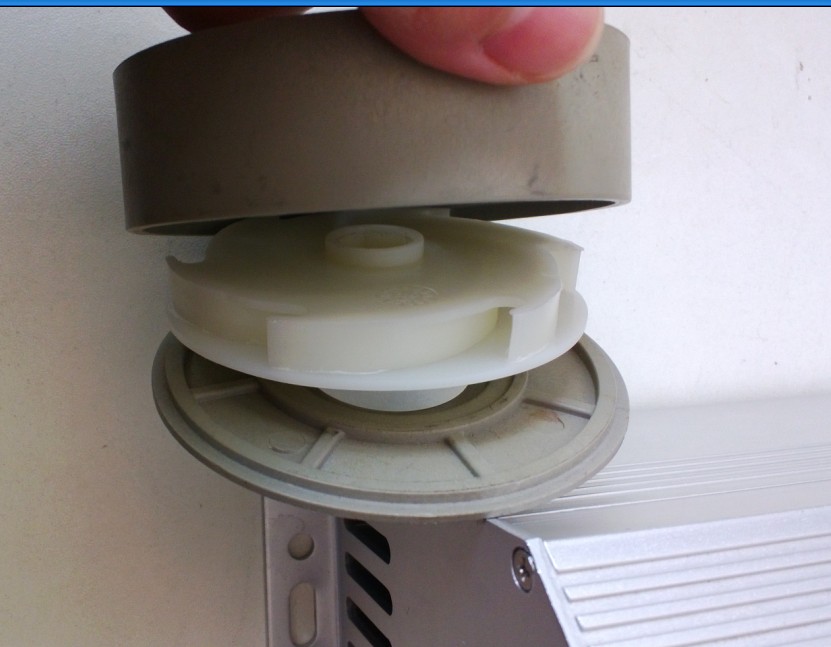
controller box:
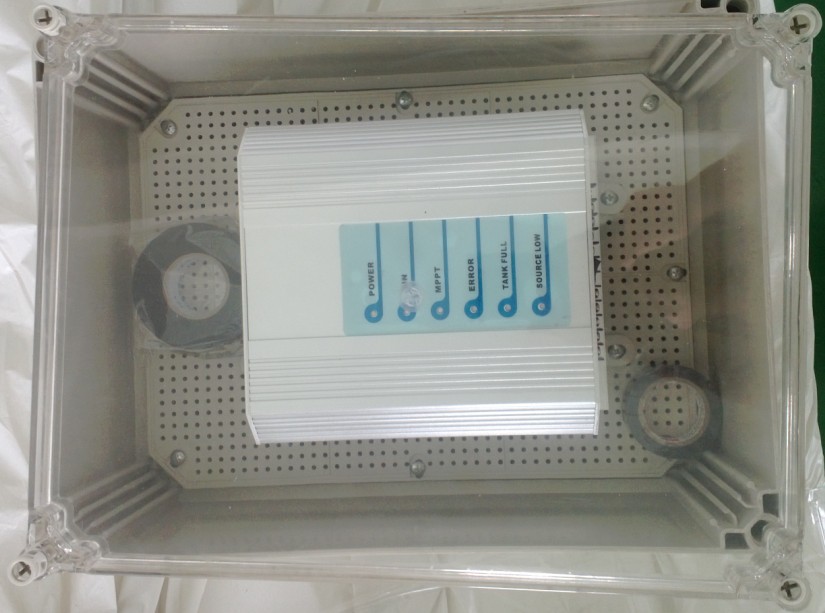
the senors:
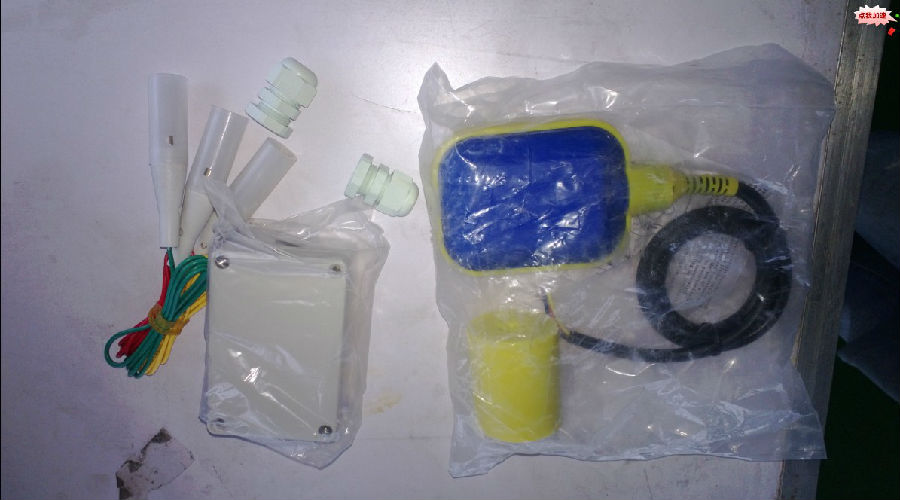
the test:
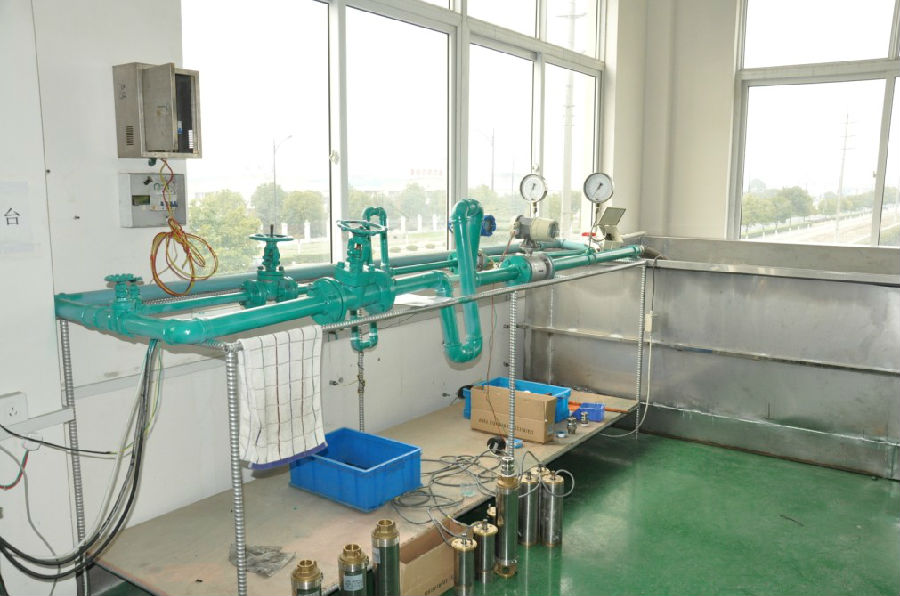
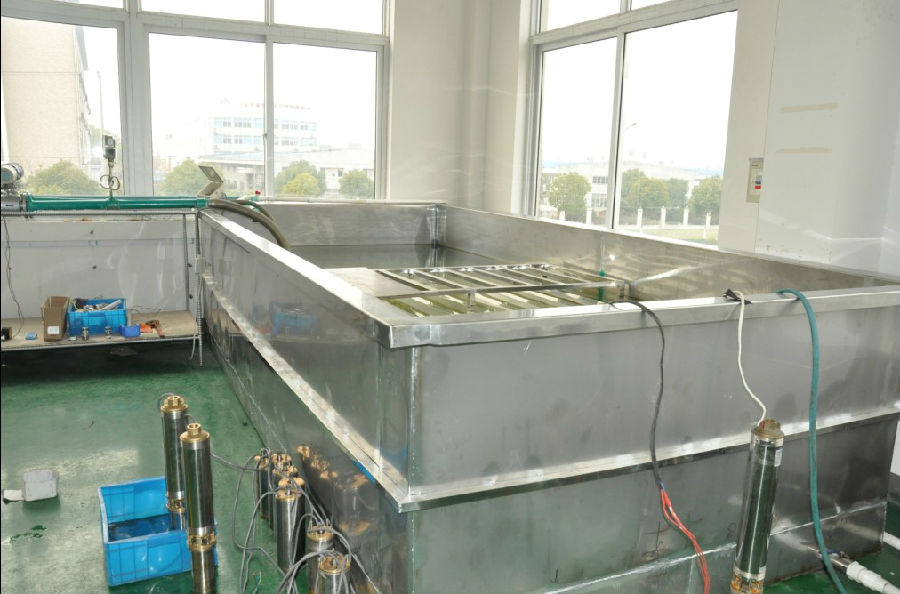
the application:
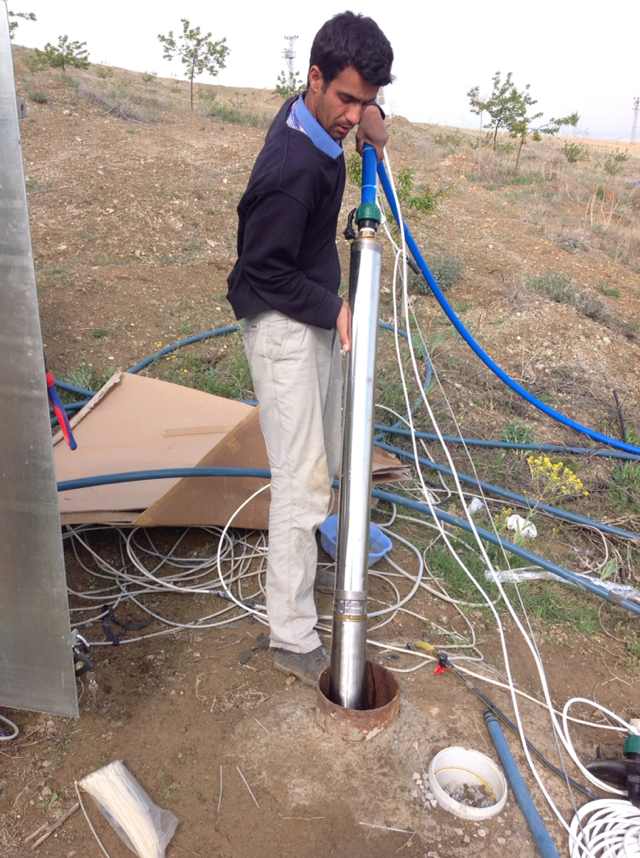
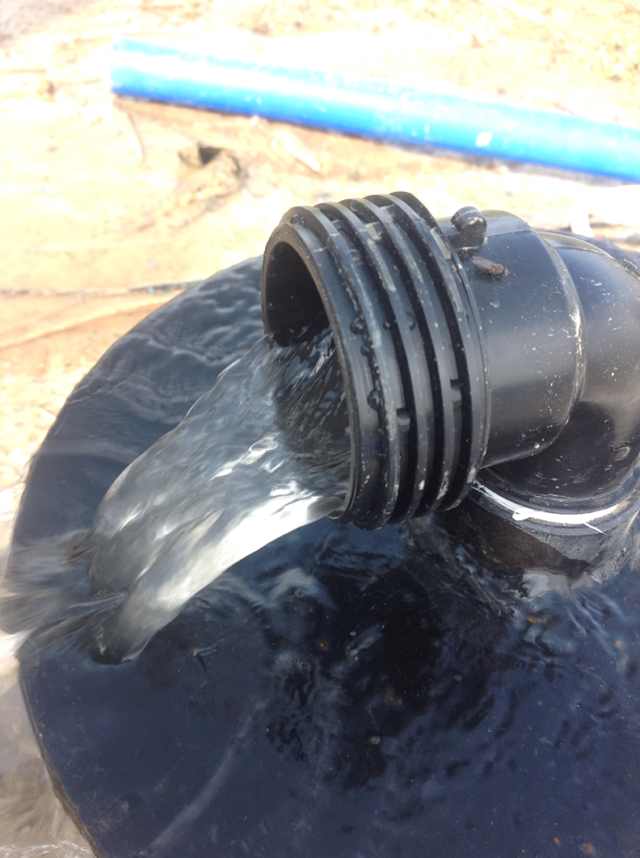
the package:
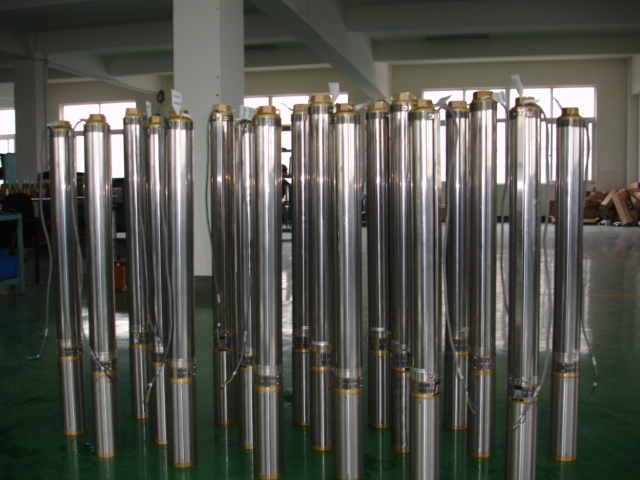
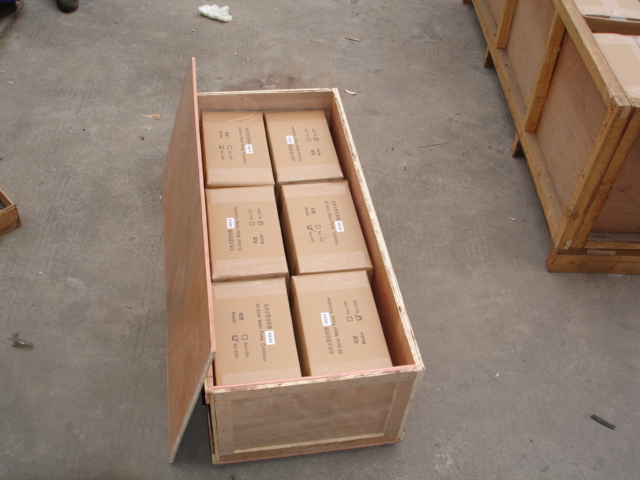
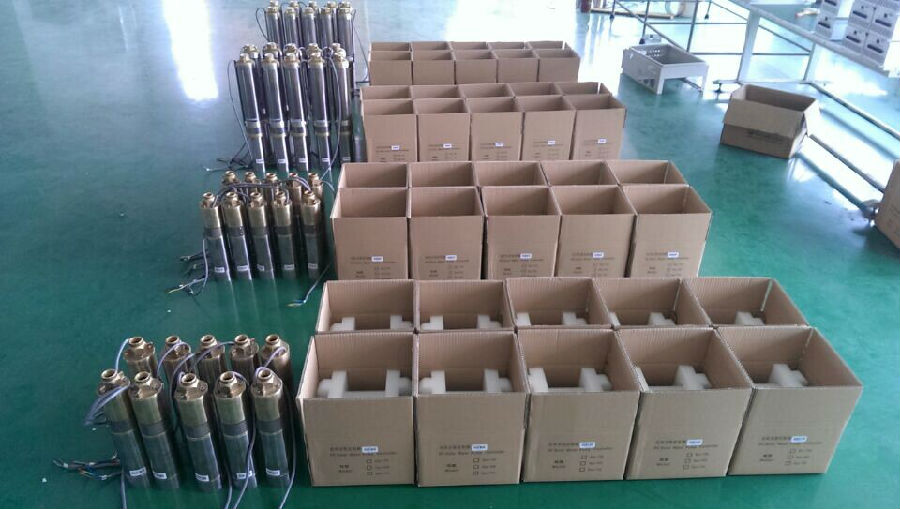
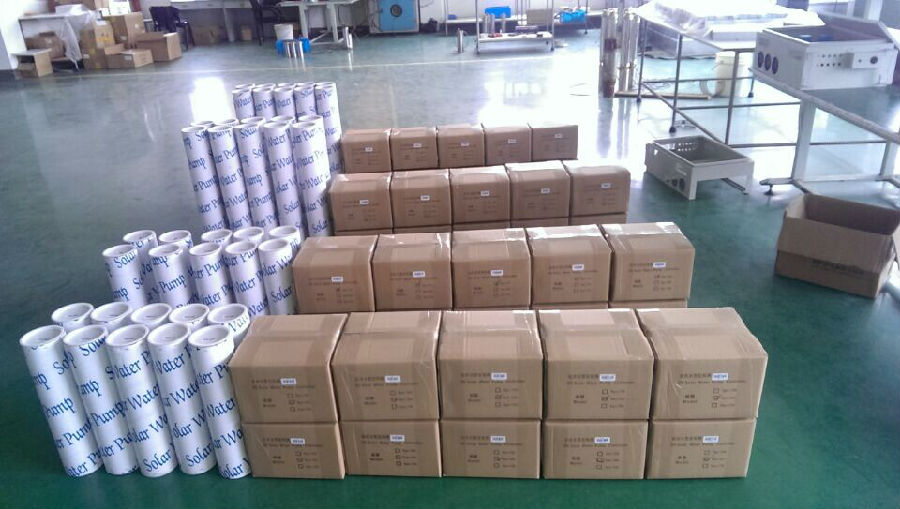
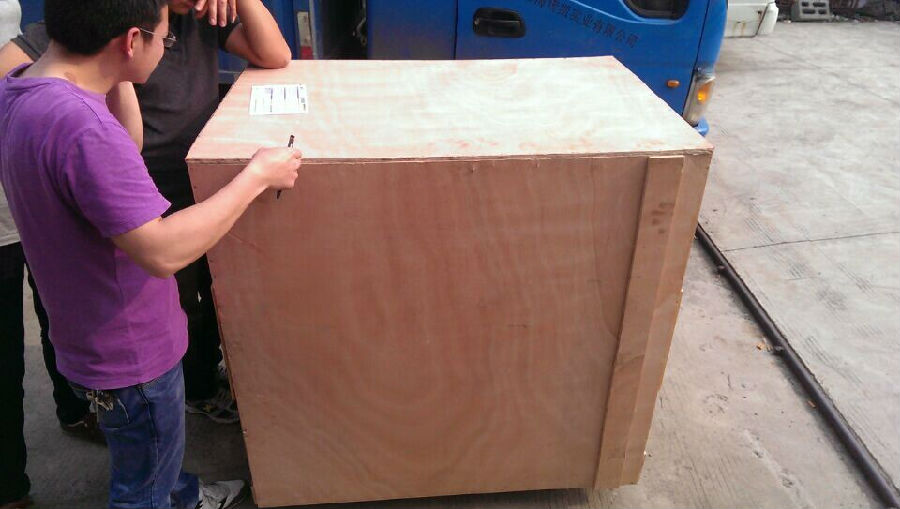
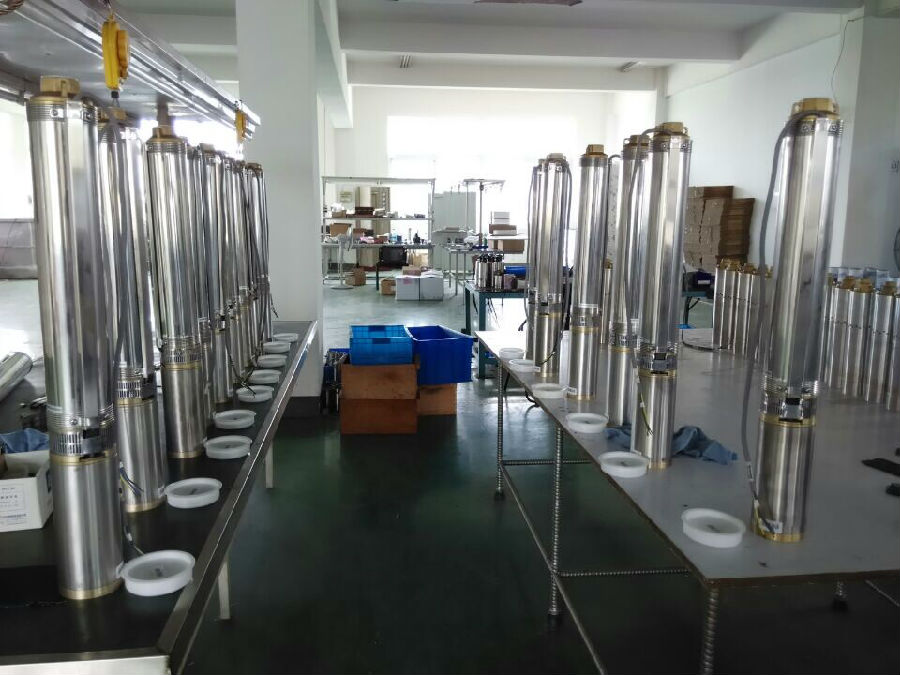
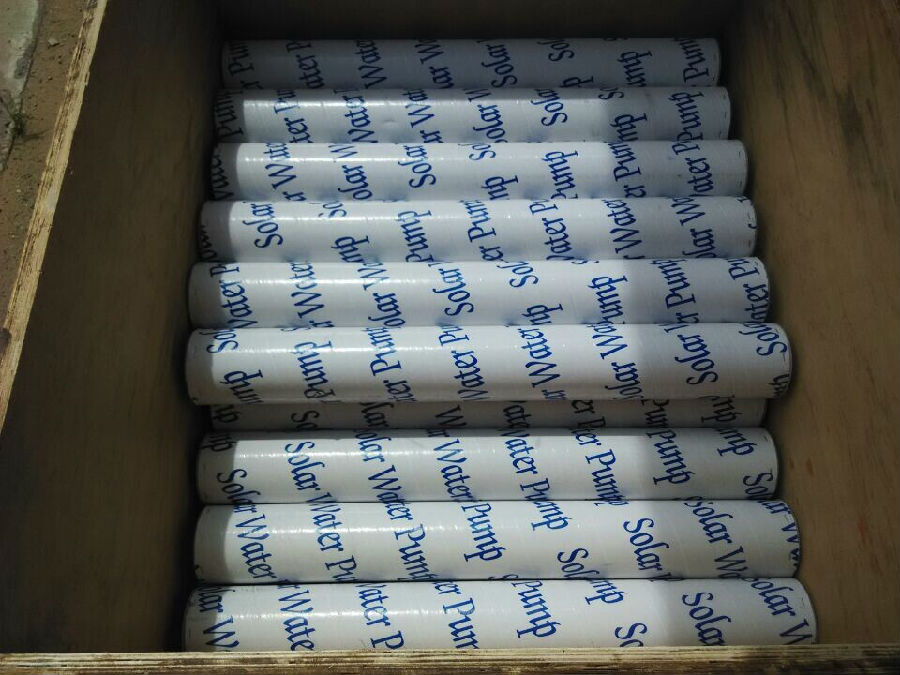
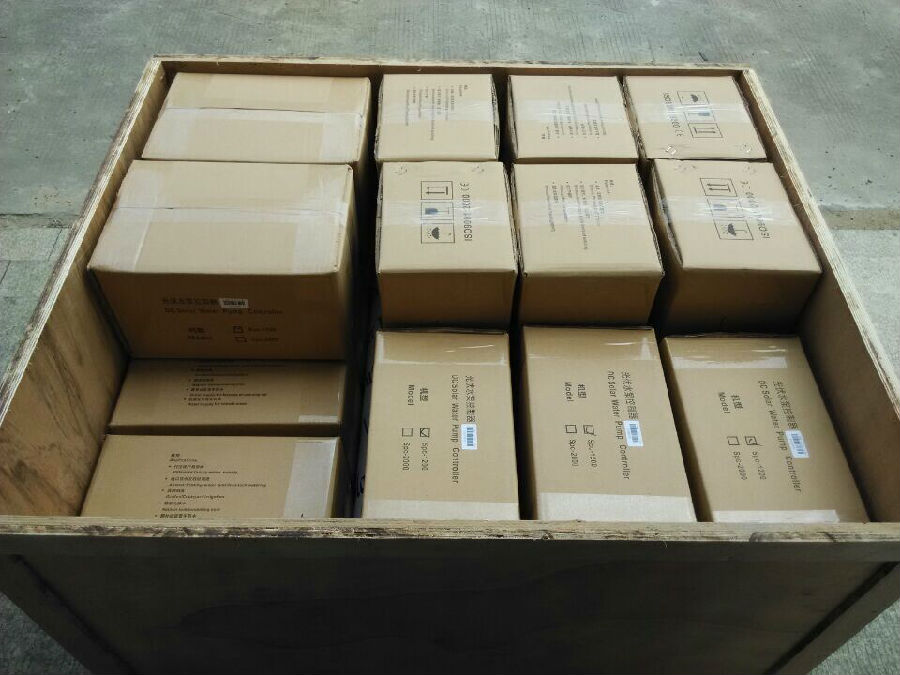
- Q: Can solar pumps be used for water supply in greenhouses or nurseries?
- Yes, solar pumps can indeed be used for water supply in greenhouses or nurseries. Solar-powered pumps are an environmentally friendly and cost-effective solution for providing water to plants in these settings. They utilize solar energy to power the pumps, eliminating the need for grid electricity and reducing operational costs. Additionally, solar pumps can be easily installed and require minimal maintenance, making them a practical choice for water supply in greenhouses and nurseries.
- Q: Can solar pumps be used for water supply in mining or quarrying operations?
- Yes, solar pumps can be used for water supply in mining or quarrying operations. Solar pumps are often utilized in these operations as they offer a sustainable and cost-effective solution for pumping water. They can be powered by solar energy, eliminating the need for traditional fuel sources and reducing operational costs. Additionally, solar pumps are reliable and can provide a consistent water supply, making them suitable for mining or quarrying operations that require water for various processes and activities.
- Q: What is the typical efficiency rating of a solar pump system?
- The typical efficiency rating of a solar pump system can vary depending on several factors. Generally, solar pump systems have an efficiency rating ranging from 15% to 30%. This means that they can convert around 15% to 30% of the solar energy they receive into mechanical or electrical energy to power the pump. However, it is important to note that the efficiency rating can be influenced by various factors such as the type and quality of solar panels used, the size and design of the pump system, the location and climate conditions, and the overall system setup. Additionally, the efficiency of a solar pump system may also be affected by maintenance practices, such as keeping the solar panels clean and free from shading, ensuring proper alignment with the sun, and regular monitoring of the system's performance. Ultimately, it is crucial to consider these factors and consult with professionals or manufacturers to determine the specific efficiency rating of a particular solar pump system based on its design, components, and operating conditions.
- Q: Can a solar pump be used for industrial purposes?
- Yes, a solar pump can indeed be used for industrial purposes. Solar pumps are increasingly being utilized in various industrial applications such as agriculture, water supply, irrigation, and wastewater management. They offer a sustainable and cost-effective solution by harnessing solar energy to power the pump, reducing the reliance on traditional energy sources. Moreover, solar pumps are often more reliable, require less maintenance, and have a longer lifespan compared to conventional pumps, making them a viable choice for industrial use.
- Q: Are there any water quality requirements for a solar pump?
- Yes, there are water quality requirements for a solar pump. The specific requirements may vary depending on the type and design of the solar pump, as well as the intended use of the pumped water. However, in general, the water quality should meet certain standards to ensure the efficient and safe operation of the pump. One important requirement is that the water should be relatively clean and free from excessive sediment, debris, or large particles. This is because such impurities can clog or damage the pump, reducing its efficiency and lifespan. Additionally, if the solar pump is used for irrigation purposes, for example, the water should not contain high levels of contaminants, such as salts, chemicals, or heavy metals, which may harm plants or crops. Furthermore, the water quality should also be suitable for the specific type of solar pump being used. For instance, if the pump includes a submersible motor, the water should be free from corrosive substances that may damage the motor components. Similarly, if the pump uses a filtration system, the water quality should not exceed the maximum allowable levels for the filter's capacity to effectively remove impurities. It is important to consult the manufacturer's guidelines and specifications for the solar pump being used to determine the specific water quality requirements. Additionally, conducting periodic water testing and maintenance can help ensure that the pump operates optimally and remains in good condition.
- Q: How long does a solar pump last?
- A solar pump typically has a lifespan of around 20 to 25 years, depending on factors such as the quality of the pump, maintenance, and usage patterns.
- Q: Are solar pumps cost-effective compared to traditional pumps?
- Yes, solar pumps are cost-effective compared to traditional pumps. While the initial upfront cost of installing a solar pump may be higher, they have significantly lower operational costs as they rely on free and renewable solar energy to power them. Traditional pumps, on the other hand, require electricity or fuel, which can be expensive and subject to price fluctuations. Additionally, solar pumps have lower maintenance costs and longer lifespans, resulting in overall cost savings in the long run.
- Q: Can a solar pump be used for water supply in refugee camps or disaster relief areas?
- Yes, a solar pump can be used for water supply in refugee camps or disaster relief areas. Solar pumps are an efficient and sustainable solution that can provide access to clean water without relying on electricity grids. They can be easily installed and operated, making them suitable for remote and off-grid locations. Solar pumps also have low maintenance requirements, making them ideal for challenging environments. Overall, solar pumps offer a reliable and environmentally friendly option for water supply in such areas.
- Q: What is the warranty period for a solar pump system?
- The warranty duration of a solar pump system can differ based on the manufacturer and the specific product. In general, trustworthy manufacturers typically offer warranties that span from 1 to 5 years. Within this timeframe, the manufacturer will undertake free repairs or replacements for any flaws or malfunctions in the solar pump system. Before procuring a solar pump system, it is crucial to thoroughly examine the warranty terms and conditions furnished by the manufacturer since certain warranties might entail limitations or exclusions. Additionally, it is advisable to opt for a solar pump system from a dependable manufacturer that provides commendable customer support and after-sales service to guarantee a seamless warranty claim process, if necessary.
- Q: Can a solar pump be used for desalination or saltwater conversion?
- Yes, a solar pump can be used for desalination or saltwater conversion. Solar pumps can provide the necessary energy to power desalination systems, which remove salt and other impurities from seawater to make it suitable for drinking or irrigation purposes. The solar energy can be harnessed to power the pumps that move water through the desalination process, making it a sustainable and environmentally friendly solution for saltwater conversion.
Send your message to us
DC Brushless Solar water pump
- Loading Port:
- Shanghai
- Payment Terms:
- TT OR LC
- Min Order Qty:
- -
- Supply Capability:
- 300 set/month
OKorder Service Pledge
Quality Product, Order Online Tracking, Timely Delivery
OKorder Financial Service
Credit Rating, Credit Services, Credit Purchasing
Similar products
Hot products
Hot Searches
Related keywords
